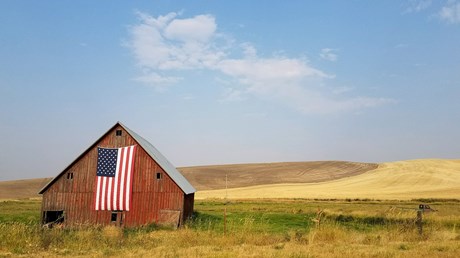A writer and a scholar attempt sympathetic portrayals of the president’s rural supporters, but their sympathy only extends so far.

The torrent of words brought forth by the election of Donald Trump has turned modern political discourse into a daily obstacle course, dizzying in its movement from one news cycle to the next. Setting aside the daily headlines of escalating racial tension, immigration debate, budget fiascoes, Russian collusion, and Stormy Daniels to delve into deeper cultural, theological, and political trends is a daunting proposition. Fortunately, that weightier sort of analysis is starting to appear in print, as evidenced by new books from sociologist Robert Wuthnow and essayist Mark Phillips. Both authors are trying to make sense of why anybody, but especially residents of rural America, could have voted for Trump. Their efforts invite the reader to examine the tangled American psyche, to peer over the deep divisions of political ideology and consider the places, communities, and people themselves.
In The Left Behind: Decline and Rage in Rural America, Wuthnow, of Princeton University, brings years of research to bear, applying his scholarship to examine the plight of beleaguered small towns. He and his students conducted hundreds of interviews across the heartland. They ventured into villages on the edge of collapse, towns making a slow but persistent comeback, and municipalities that Wuthnow describes as “holding steady.” Wuthnow wanted to understand what trends and attitudes led to the election of Donald Trump—and, if possible, to gain sympathy for those who have drawn so much ire from left-leaning intellectuals like himself.
Wuthnow describes what he calls “moral communities,” a term he uses to indicate a gut-level social cohesion felt within smaller towns. Moral communities derive a sense of identity ...
from
http://www.christianitytoday.com/ct/2018/may-web-only/taking-measure-of-trump-country.html
No comments:
Post a Comment